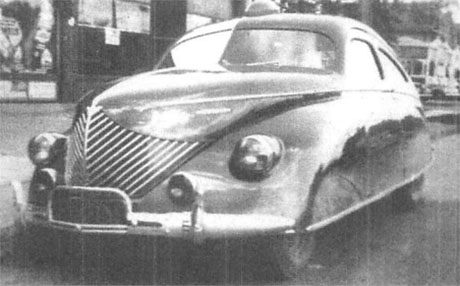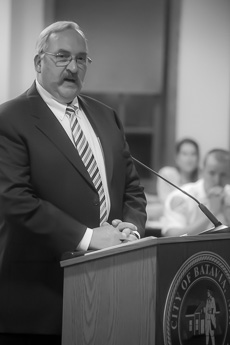

Oh, those were first dreamed up, in a fashion, by a Batavia inventor, too.
Charles D. Thomas, born in Batavia in 1910, grew up to be a car designer and his dream car was Thomas Rocket Car. Designed to be sleek and powerful, Thomas also dreamed of a car that was affordable and safe at a time when safety wasn't a high priority in Detroit.
So he invented the "Ventriscope": a periscope-type of device that gave drivers of the world to their rear. He also came up with the idea of extra padding in the passenger compartment to protect occupants in a crash. Your car has four-wheel independent suspension. That didn't exist in 1938 when Thomas built his Rocket Car, which did have four-wheel independent suspension.
When Thomas showed off his car in Detroit, experts agreed it was at least a decade ahead of its time.
You might say Charles Thomas was the Preston Tucker of Batavia, but it was also Tucker's failure to bring his own car to market as a mass-produced automobile that also doomed the Rocket Car. When Tucker failed, investors were scared off of such a unique and inventive conception of motoring.
There was only one Thomas Rocket Car ever made. It was built in an auto shop about where Dunn Tire is now. A group of antique car buffs think it's time for this unique piece of Batavia history be returned to its rightful home, but it will take the cooperation of the City Council to make it happen.
Local businessman Dave Howe, owner of Charles Men's Shop and the Masonic Temple building, and an antique car collector, represented the group of would-be Rocket car restorers at Monday's council meeting and said the group has a simple request: That the city agree to accept the car, once it's fully restored, as a gift and agree to keep it and display it for the public.
Howe said he and the group believe the car will be a tourist attraction since its well known to auto history enthusiasts and car collectors and will give Batavia a unique perspective on the city's history.
The council will consider the request at its next business meeting.
Accepting the car as a gift will cost the city nothing, Howe said, and outside of keeping it clean and acquiring antique car insurance, which Howe described as inexpensive, the ongoing expense for the city will be minimal.
The group interested in restoring the car is really only interested in purchasing it (the car and all its parts have been located, but not yet acquired) if the city is willing to accept the gift.
